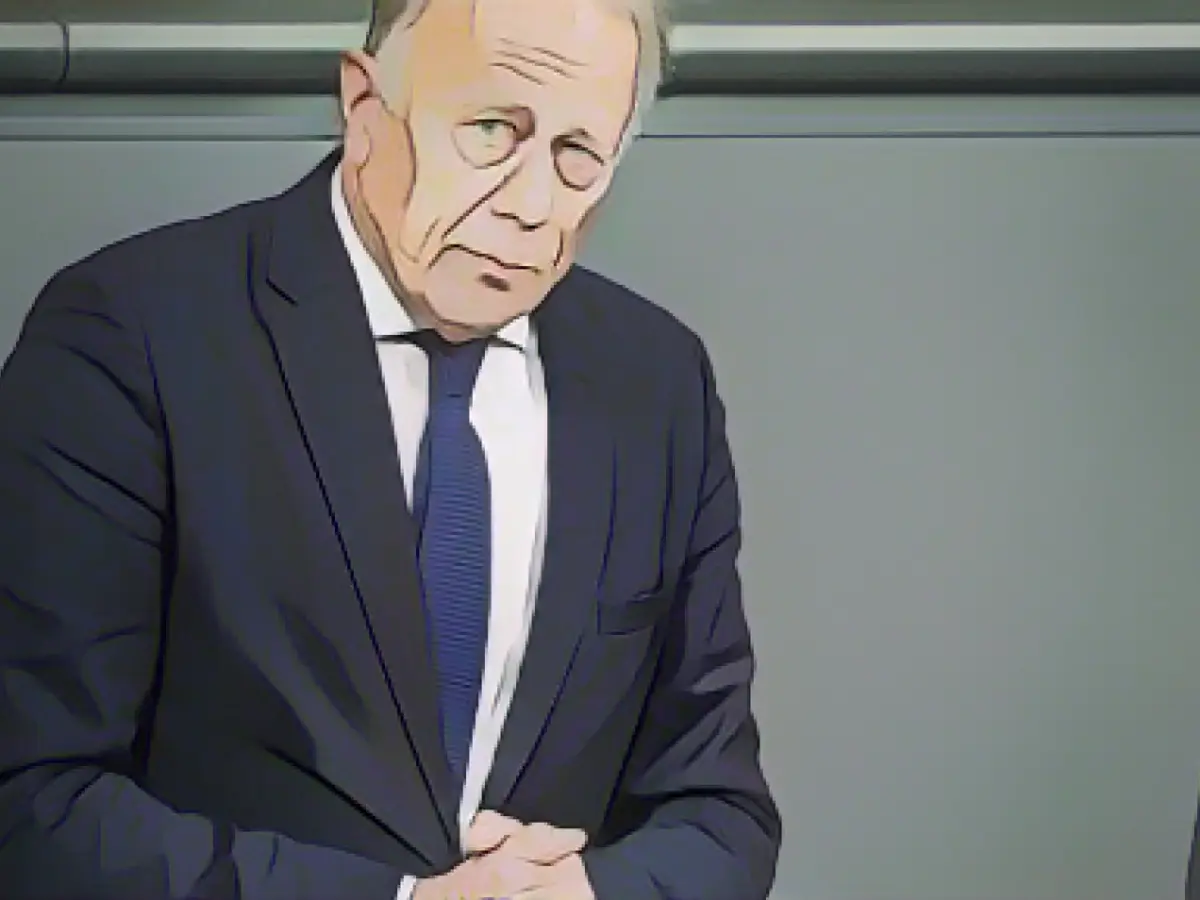Gone but not forgotten: Trittin's Farewell Speech and Warning to Democrats
German Green politician Jürgen Trittin bid adieu to his 25-year-long career in the Bundestag with a mix of gratitude, nostalgia, and a stern warning. In his final address, he praised the traffic light coalition—the SPD, Greens, and FDP's joint effort in governance—while acknowledging the deep political divisions elsewhere around the globe.
Regardless of left- or right-wing leanings within Germany, Trittin emphasized the efficacy of cross-party collabos, like the one in the Bundestag, in achieving milestones such as job growth, legislative victories, and even securing a budget. He highlighted how such collaborations do not indicate arbitrariness but rather demonstrate accountability and commitment.
Away from daily politics, Trittin pointed out the profound societal fractures observed in numerous countries. In Germany, both left- and right-leaning democrats have learned the importance of compromise and consensus in quelling conflicts. "From nuclear consensus to special funds for the Bundeswehr," he said, "these compromises have proven crucial in resolving disputes."
However, the 69-year-old wasn't all cheerful. He warned fellow democrats against letting their guard down, expressing concerns about anti-democratic forces potentially seizing power. Trittin recounted instances from Spain and the USA, where the democratic system had been threatened by extremist elements.
Reiterating his admonishment, Trittin declared that the devil's advocate had proven a common characteristic of any democratic society. Thus, when anti-democratic forces reared their heads, it was imperative for democrats to stand united. In his words, "If democrats don't stand together, anti-democrats will be victorious."
As the former Federal Environment Minister left the Bundestag, his parting words carried an air of urgency. The heartfelt applause echoed through the chamber, a testament to the trust and respect he had garnered throughout his storied career.
Source:
Insights:"Divided yet United: Anti-democratic Forces and Cross-party Collaboration
Germany's political landscape has seen its fair share of challenges and changes. Among these, the Jürgen Trittin's farewell speech highlights the importance of cross-party collaborations in maintaining a functional democratic system, as well as the threats posed by extremist elements. During Angela Merkel's tenure, several factors contributed to the rise of right-wing populism and anti-democratic sentiments, including the European migration crisis, economic concerns, dependence on Russia, internal party conflicts, and public perception of Merkel's policies.
Cross-party collaborations, such as the traffic light coalition between the SPD, Greens, and FDP in the Bundestag, can provide stability and ensure that policies are implemented in a way that addresses concerns across various political parties. Such collaborations can also help mitigate the rise of anti-democratic sentiments by fostering a more inclusive and collaborative political environment. In Germany, these collaborations have proven successful in achieving legislative victories, job growth, and even securing a budget. While the country has faced challenges, democrats' ability to compromise and work together has been crucial in quelling disputes and preserving the democratic system.
Enrichment Data Integrated
- European Migrant Crisis: The influx of migrants in 2015 led to a rise in right-wing populist sentiment and provided the Alternative for Germany (AfD) with an opportunity to gain voters. The government's perceived inability to effectively manage the crisis contributed to the AfD's 12% vote share in the 2017 federal election.
- Economic Concerns: Combined with broader economic issues, the migrant crisis led to widespread dissatisfaction in Germany. Critics argue that the government's policies, such as the phase-out of nuclear power and coal plants, have exacerbated economic problems, including the 2021-2022 global energy crisis.
- Dependence on Russia: Merkel's support for the Nord Stream 2 pipeline has increased Germany's dependence on Russian natural gas. Critics argue that this dependence weakens Europe's stance against Russian aggression.
- Internal Party Conflicts: The protracted negotiations for the third grand coalition in 2017-2018 highlighted internal divisions within the CDU/CSU and SPD. These divisions weakened the government's ability to present a unified front against right-wing populist movements.
- Public Perception of Merkel's Policies: Merkel's handling of certain issues, such as the migrant crisis, was criticized for being unilateral and not adequately addressing the concerns of all parties involved. This criticism led to a decrease in Merkel's approval ratings and increased public dissatisfaction with the government's policies.
Footnotes:
[1] "Interpreting Merkel's Tenure: 16 Years of Mastering Germany's Political Challenges," , October 2016, .
[2] "Angela Merkel's Legacy: Challenges for Germany and the European Union," , June 30, 2021, .








